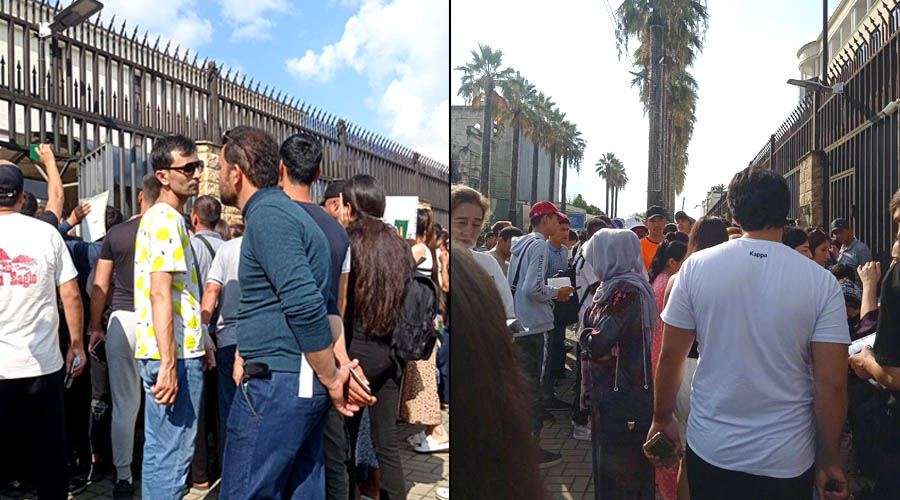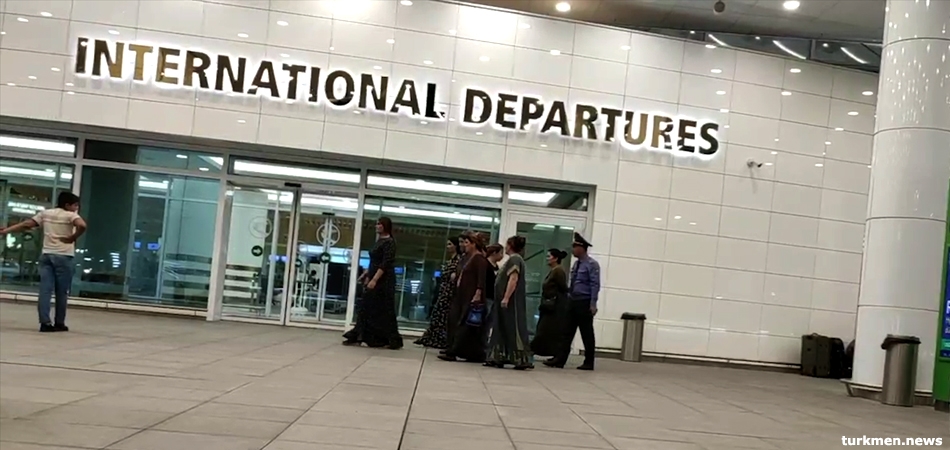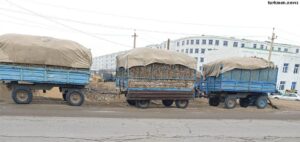
Turkmen Citizens No Longer Able to Renew Russian Visas in Abkhazia
13.09.2023
The special services in Turkmenistan are holding “educational chats” with applicants for U.S. Green Cards, sources report, while the number of applicants for the cards has grown exponentially in recent years. At the same time, outages on VPNs (Virtual Private Networks) have been continuing since the end of October, while the special services have started to challenge VPN installers.

Turkmen.news sources in Lebap region say it is difficult for local residents to take part in the U.S. Green Card lottery. Without a VPN it’s possible only to access the first page on the lottery application site. At the first attempt to continue to the next page a screen message appears saying there is no Internet connection. Would-be applicants take to forums to find ways round the problem. Suggested fixes include switching off the VPN just before sending off the form or filling it in very quickly.
It has just emerged that Ministry of National Security employees are tracking whoever has tried to apply. Not long ago they visited the homes of these people and gave them a verbal warning as it was their first visit, but said that whoever does not give up attempts to emigrate will face more serious problems.
It’s easy to understand the concern of the special services in a country where the real size of the population is decreasing all the time in contrast with the optimistic official statistics. In 2007 citizens of Turkmenistan made 5,290 applications for Green Cards. In 2015 the number had gone up to 11,966, a record at that time. But these were just the first shoots. The numbers continued to grow in the following years:
Put another way, since 2007 the number of Turkmen citizens wanting to emigrate to the U.S.A. has increased more than tenfold. Even the coronavirus pandemic has not slowed the numbers, although in 2020 visas that had already been issued proved worthless because of the virus. In fact, the reverse is true: the economic crisis in the country is getting worse, and even those who recently could not have imagined doing so have decided to emigrate. The same applies to those who want to go to Russia: the number has increased sharply.
Turkmenistan’s authorities try to counter emigration in their usual fashion – imposing secret restrictions rather than making urgent reforms and improving the standard of living. During the pandemic citizens have been obliged to get permission from the migration service to leave the country. Now it’s even laborious to apply for a Green Card.
As for the VPN services that are used to make a Green Card application, they still have outages. In the past few days National Security Ministry employees have visited VPN installers in the town of Seydi and in Farap district, both in Lebap region. They told the computer specialists to stop providing this service if they “don’t want to create problems for themselves.” The officers said that there would soon be an inspection from Ashgabat in Lebap region. The computer specialists tried to explain that the demand for VPNs would fall if the special services removed the blocks on Skype and WhatsApp. These are the programs that the majority of users need in order to keep in touch with their relatives abroad. The officers replied that it was not their decision, pointing upwards to show that the decision is taken “higher up.”
Bearing in mind the Green Card situation, it is to be assumed that “people higher up” do not have much sympathy for emigrants themselves or their relatives.
Meanwhile, problems have arisen in Farap district and maybe elsewhere too with the work of IMO, the only accessible messaging system. Of course, there is no legislative basis for opposing potential emigrants. Nor is a ban on the use of VPNs recorded in any legal norms. There is not even an official list of blocked sites in Turkmenistan that has been confirmed by a court or other body, at least as a formality. On the contrary, when necessary the authorities pretend there is no restriction on “digitalization” in the country.

Petrofac Back in Favour in Turkmenistan After Falling Foul of Berdimuhamedov
18.03.2024

Murder and Suicide at Troubled Turkmen School
28.02.2024

Turkmen Prosecutor’s Office Claims Baloch Detainee’s Fatal Wounds Were Self-Inflicted
01.02.2024

Low Prices Lead Turkmen Farmers to Sell Cotton Harvest Residues for Fodder
19.01.2024

Young Man Tortured to Death by Law-Enforcement Officers in Turkmenistan (video)
21.12.2023
Tell us!
Add comment
your e-mail will not be published